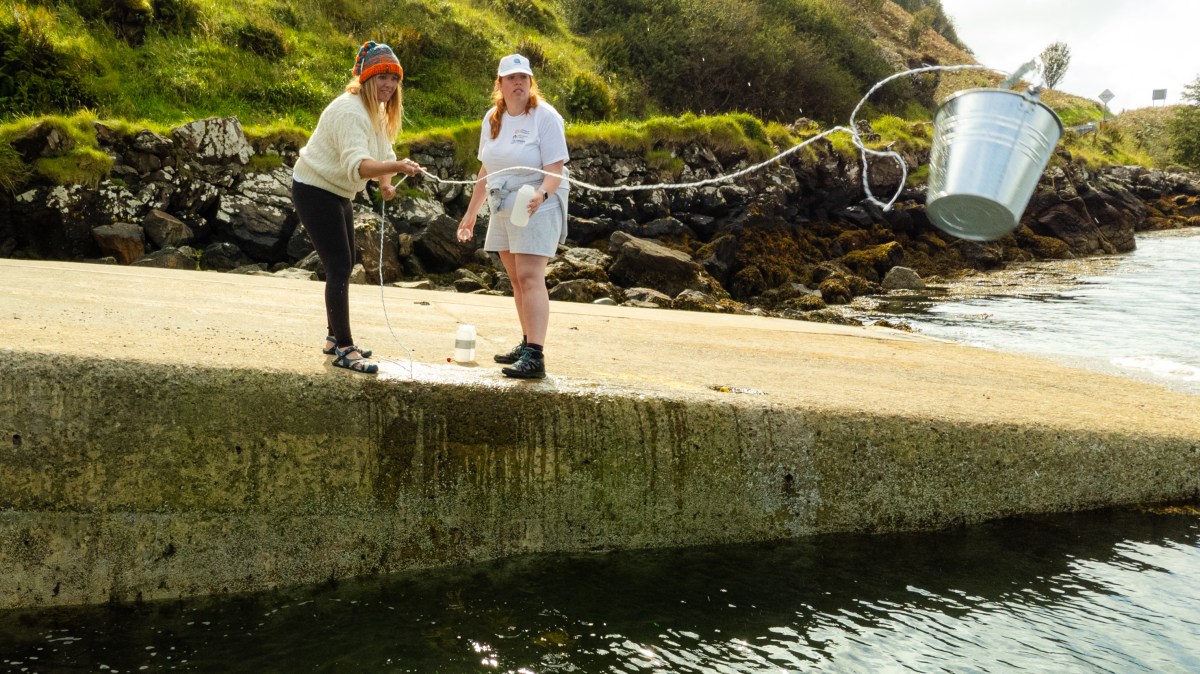Science
Scientists Call for Public Help to Map Global Microplastics

Scientists are seeking public assistance to map the world’s microplastics, a pressing environmental concern. Dr. Sarah Hargrove, a former forensic scientist, has developed a method that allows individuals to study and report microplastic pollution using only their mobile phones. This innovative approach aims to create a comprehensive global database of microplastics, which pose a significant threat to ecosystems and human health.
The initiative encourages volunteers from around the world to contribute data on microplastic prevalence in their local environments. Participants can utilize a specially designed mobile application that guides them through the process of collecting samples and reporting findings. This grassroots effort is expected to enhance the quality and reach of research on microplastics, which have been detected in oceans, rivers, and even in the air we breathe.
Mobilizing Citizen Science for Environmental Change
Dr. Hargrove’s project leverages the power of citizen science, empowering everyday people to play an active role in environmental monitoring. By using mobile technology, the project aims to gather vast amounts of data that would be challenging for traditional scientific methods to achieve alone. “With our app, anyone can contribute to important research that can lead to significant environmental policy changes,” stated Dr. Hargrove.
The potential for this initiative is vast. Microplastics are tiny plastic particles that result from the breakdown of larger plastic waste or are manufactured as microbeads in personal care products. According to a 2023 report by the United Nations, it is estimated that there are over 5 trillion pieces of plastic in the world’s oceans, with microplastics making up a substantial portion. These particles can enter the food chain, affecting marine life and potentially human health.
Participants in the study will be instructed on proper sampling techniques, ensuring that the data collected is both accurate and useful. The app not only simplifies the process but also includes educational resources about the impact of microplastics on the environment. By fostering awareness and engagement, the initiative hopes to inspire a more profound commitment to reducing plastic waste.
Global Impact and Future Directions
As the project gains momentum, researchers anticipate that the data collected will inform future studies and provide critical insights into the distribution and impact of microplastics. This information could shape policies aimed at reducing plastic pollution and protecting ecosystems.
The initiative represents a vital step in addressing a global crisis. With millions of tons of plastic entering oceans each year, the collective efforts of individuals can lead to meaningful change. “We’re not just mapping microplastics; we’re building a community dedicated to environmental stewardship,” Dr. Hargrove emphasized.
By participating in this project, individuals contribute to a growing movement that seeks to combat pollution and safeguard the planet for future generations. The call for public involvement underscores the importance of shared responsibility in tackling one of the most significant environmental challenges of our time.
-

 Entertainment3 months ago
Entertainment3 months agoAnn Ming Reflects on ITV’s ‘I Fought the Law’ Drama
-

 Entertainment4 months ago
Entertainment4 months agoKate Garraway Sells £2 Million Home Amid Financial Struggles
-

 Health2 months ago
Health2 months agoKatie Price Faces New Health Concerns After Cancer Symptoms Resurface
-

 Entertainment3 months ago
Entertainment3 months agoCoronation Street’s Carl Webster Faces Trouble with New Affairs
-

 Entertainment2 months ago
Entertainment2 months agoWhere is Tinder Swindler Simon Leviev? Latest Updates Revealed
-

 Entertainment4 months ago
Entertainment4 months agoMarkiplier Addresses AI Controversy During Livestream Response
-

 Science4 weeks ago
Science4 weeks agoBrian Cox Addresses Claims of Alien Probe in 3I/ATLAS Discovery
-

 Entertainment4 months ago
Entertainment4 months agoKim Cattrall Posts Cryptic Message After HBO’s Sequel Cancellation
-

 Entertainment2 months ago
Entertainment2 months agoOlivia Attwood Opens Up About Fallout with Former Best Friend
-

 Entertainment3 months ago
Entertainment3 months agoMasterChef Faces Turmoil as Tom Kerridge Withdraws from Hosting Role
-

 Entertainment4 months ago
Entertainment4 months agoSpeculation Surrounds Home and Away as Cast Departures Mount
-

 World2 months ago
World2 months agoCole Palmer’s Mysterious Message to Kobbie Mainoo Sparks Speculation





















